Mozambique: Digital data 'oil of 21st century' for economy, social growth - govt
Economy shows signs of gradual recovery, says PM

The Mozambican economy “is continuing to show encouraging signs of gradual recovery”, Prime Minister Carlos Agostinho do Rosario told the Mozambican parliament, the Assembly of the Republic, on Wednesday.
Speaking at a question and answer session between the government and the parliamentary deputies, Rosario said the main macro-economic indicators “maintain a trajectory of stability”. The exchange rate of the Mozambican currency, the metical, was stable against the US dollar and the South African rand, which had contributed to a sharp fall in inflation.
Currently the annual inflation rate is 4.6 per cent, which compares with 22.3 per cent in May 2017. “Our perspective is that inflation will remain low and stable”, said the Prime Minister, “contributing to alleviating the cost of living, and providing an environment of greater predictability to the businesses that want to invest in our country”.
Mozambique’s net foreign reserves were now sufficient to cover imports of goods and services for 6.9 months, compared with only 4.7 months a year ago. Rosario attributed this increase to “the favourable evolution of the prices of our main export products on the international market”.
He claimed there has been improved management of the public accounts, notably a reduction in public expenditure, as a percentage of the gross domestic product, which fell from 33.9 per cent in 2017 to 30.5 per cent now.
“This reflects our fiscal consolidation efforts, with an increasingly efficient allocation of resources, in order to generate a greater impact on the economy”, said Rosario,
The improvement in the public accounts, he continued, had allowed the government to begin regularising the debts of the Mozambican state to private suppliers of goods and services. Some of these debts dated back to 2007. He pledged that, once the debts had been verified, they would be paid.
The economic improvement also meant the government would resume work that had been paralysed for lack of funds, such as the building or rehabilitation of seven district hospitals.
Rosario pledged that, by the end of this year, all 153 district capitals will be electrified. Work is being concluded to connect the last two districts – Luabo in Zambezia province and Doa in Tete – to the national grid.
The government, he added, will continue to bring electricity to administrative posts, the level of territorial organisation immediately below districts. By September 235 of the country’s 434 administrative posts had been connected to the grid.
The Mozambican economy cannot depend on the extractive industry, Rosario warned, and diversifying the economy would mean concentrating essentially on agriculture. Banking on agriculture “is the path to generating more jobs and more income”.
The preliminary assessment of the 2018 harvests was encouraging. Rosario said there had been a growth of 4.1 per cent in grain production, 17.7 per cent in pulses and 10.1 per cent in vegetables, compared with the 2017 harvest.
These results meant a greater availability of foodstuffs “which is contributing towards a gradual reduction in the cost of living and in food insecurity”, said the Prime Minister.
He was optimistic that, with the growth in the four areas chosen as priorities by the government – agriculture, tourism, energy and infrastructures – the economy would achieve growth rates in excess of eight per cent as from 2022. This is also when the first liquefied natural gas (LNG) project in the northern province of Cabo Delgado is expected to become operational.


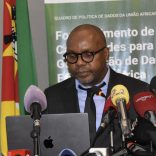
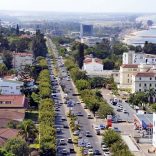
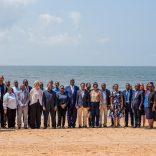
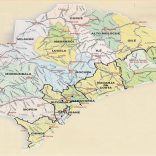
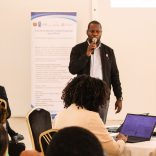
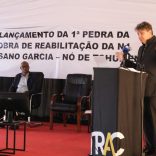




Leave a Reply
Be the First to Comment!
You must be logged in to post a comment.
You must be logged in to post a comment.